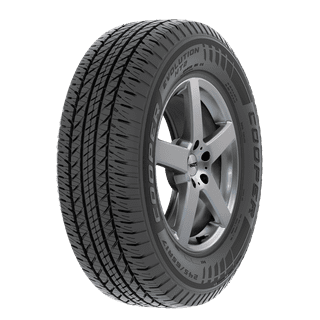Conserve Big with Mopar Tire Service Specials in Morris: Limited Time Offers
Conserve Big with Mopar Tire Service Specials in Morris: Limited Time Offers
Blog Article
Tire Solution: Recognizing Tire Stress Surveillance Systems
Comprehending Tire Stress Tracking Systems (TPMS) is a crucial element of maintaining optimal car performance and safety when driving. With developments in automotive technology, TPMS has come to be a common function in modern lorries, providing real-time information on tire stress degrees. Digging much deeper into the intricacies of TPMS, one can reveal the different parts that make up this system and the value of each in guaranteeing exact tracking. From direct to indirect TPMS systems, the landscape of tire pressure tracking varies, each with its special collection of advantages and considerations. Remain tuned to decipher the intricacies of TPMS, from upkeep pointers to the obvious benefits of maintaining your tires correctly blew up. morris tire and alignment.

Importance of TPMS
The value of Tire Stress Monitoring Equipments (TPMS) hinges on their ability to improve automobile safety and security and efficiency with real-time surveillance of tire stress levels. Maintaining the proper tire pressure is critical for making sure optimum handling, braking, and total safety and security of a car. TPMS provides chauffeurs with immediate responses on any type of overinflated or underinflated tires, permitting timely adjustments to be made.
Elements of TPMS
Making up numerous vital aspects, a Tire Stress Surveillance System (TPMS) works as a sophisticated security feature in contemporary cars. The major elements of a TPMS include sensors, a control module, and a caution sign. Sensing units are generally situated in the tire valve stem or connected to the wheel setting up, where they measure tire stress and transmit data to the control module. The control component processes this details and sets off a caution if it discovers dramatically reduced pressure in any of the tires. The caution indication, frequently a sign on the dashboard, alerts the vehicle driver to inspect the damaged tire or tires. Some progressed TPMS designs also present the actual tire pressure analyses for each and every tire, offering motorists with real-time information to guarantee ideal tire performance and safety and security. By keeping track of tire stress constantly, TPMS assists stop mishaps, minimizes tire wear, and boosts gas effectiveness, making it an essential element for automobile safety and security and performance.
Kinds Of TPMS

On the various other hand, indirect TPMS relies upon the car's wheel rate sensors to monitor tire stress. This system spots underinflation by comparing the rotational image source rates of the wheels. Indirect TPMS is much less expensive than straight TPMS, as it uses existing sensing units within the lorry.
While direct TPMS uses a lot more exact readings, indirect TPMS is easier in layout and commonly requires less maintenance. Both systems have their restrictions and advantages, and the selection in between them frequently depends upon variables such as price, automobile make, and personal choice. Understanding the distinctions in between these 2 sorts of TPMS can aid vehicle owners make educated decisions pertaining to tire upkeep and safety and security.
TPMS Upkeep Tips
Reliable maintenance of TPMS is essential for making sure optimal performance and safety of your automobile. Routinely inspecting the TPMS sensors for any damages or deterioration is important. Make sure that the sensors are clean and totally free website here from particles that could interfere with their performance. In addition, it is suggested to check the sensor batteries regularly and change them as needed to assure exact readings. Conduct routine checks on the tire look at here pressure degrees and contrast them with the TPMS analyses to ensure they correspond. If there are any kind of disparities, recalibrate the system following the supplier's guidelines. Throughout tire turning or substitute, make certain that the TPMS elements are managed thoroughly to protect against any prospective damages. Finally, if the TPMS warning light illuminates on the control panel, address the concern promptly by examining the tire pressures and the general system for any faults. By adhering to these upkeep suggestions, you can lengthen the life-span of your TPMS and improve the security of your driving experience.
Advantages of Proper Tire Stress
Keeping appropriate tire stress, as emphasized in TPMS Maintenance Tips, is essential for reaping the various benefits linked with optimum tire stress degrees. In addition, appropriate tire stress ensures also tire wear, expanding the life-span of the tires and promoting safer driving problems. In verdict, the benefits of proper tire stress go beyond just tire long life; they incorporate improved gas effectiveness, improved safety, far better car efficiency, and overall driving convenience.
Verdict
To conclude, comprehending tire stress surveillance systems (TPMS) is vital for preserving ideal tire pressure and ensuring automobile safety and security. By recognizing the importance of TPMS, being familiar with its parts, understanding the various kinds available, adhering to proper upkeep ideas, and realizing the advantages of preserving correct tire stress, motorists can improve their driving experience and lengthen the life-span of their tires. Appropriate tire pressure is key to reliable and secure lorry procedure.

Report this page